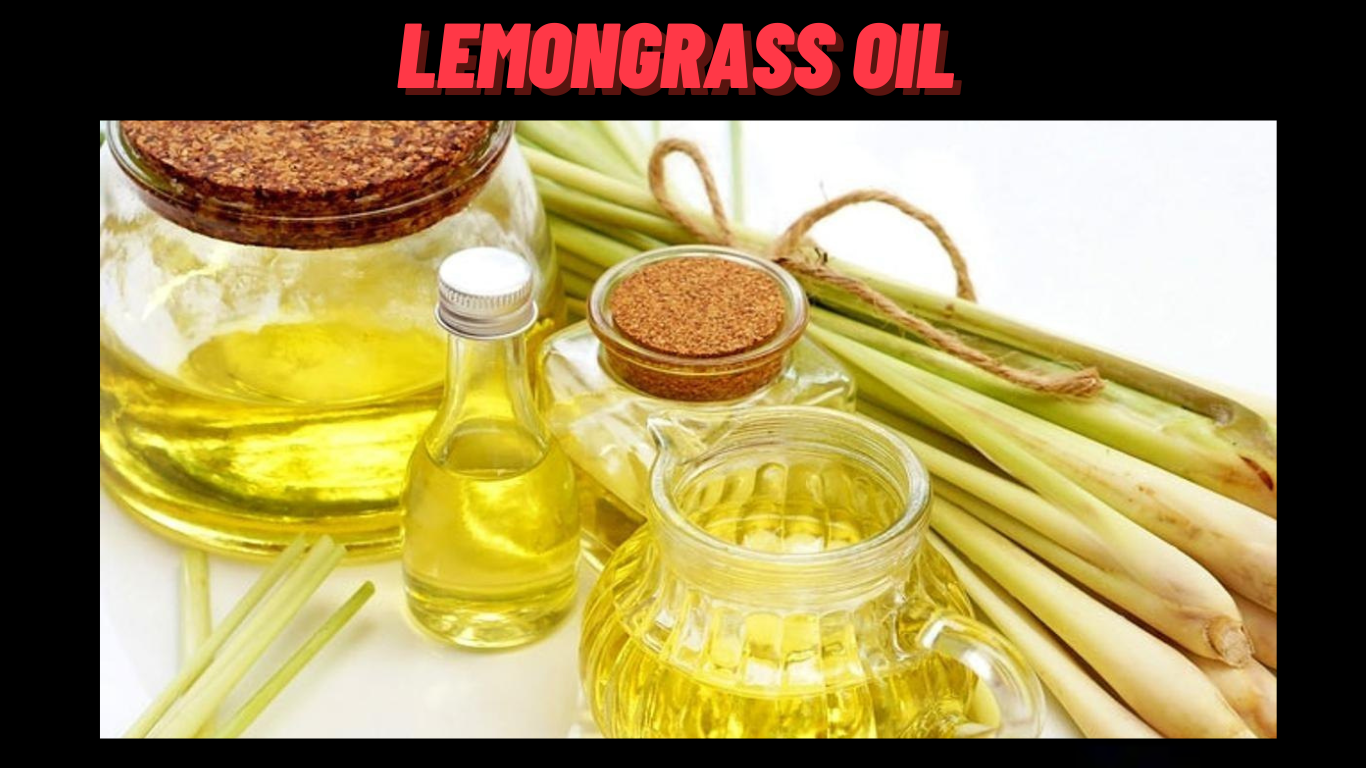Introduction
Lemongrass oil, a popular essential oil, is celebrated for its fresh, citrusy aroma and an array of health benefits. Extracted from the lemongrass plant, this oil has found its way into the daily routines of many, thanks to its versatile applications. Whether you’re looking to boost your health, enhance your beauty regimen, or simply freshen up your home, lemongrass oil might just be the solution you’re seeking.
Origin and Production of Lemongrass Oil
History of Lemongrass
Lemongrass (Cymbopogon citratus) is a tropical plant native to Southeast Asia, particularly India and Sri Lanka. Its use dates back centuries, with traditional healers and Ayurvedic practitioners utilizing its medicinal properties for various ailments.
How Lemongrass Oil is Extracted
Lemongrass oil is extracted through steam distillation of the plant’s leaves and stems. This process involves passing steam through the plant material, causing the essential oil to evaporate and then condense into a liquid. The result is a potent, aromatic oil rich in beneficial compounds.
Chemical Composition of Lemongrass Oil
Key Components
Lemongrass oil contains several key components, including citral (which accounts for its lemony scent), limonene, and geraniol. These compounds contribute to its powerful therapeutic properties.
Health Benefits of These Components
- Citral: Known for its antimicrobial and anti-inflammatory properties.
- Limonene: Acts as an antioxidant and can help reduce stress.
- Geraniol: Possesses antimicrobial and anti-inflammatory effects.
Health Benefits of Lemongrass Oil
Antibacterial and Antifungal Properties
Lemongrass oil is renowned for its ability to fight bacteria and fungi. Studies have shown that it can be effective against a variety of pathogens, making it a valuable natural alternative for maintaining hygiene and treating infections.
Anti-inflammatory and Antioxidant Effects
The anti-inflammatory properties of lemongrass oil help reduce inflammation and pain, while its antioxidant effects protect cells from damage by free radicals. This dual action makes it beneficial for a wide range of health conditions.
Digestive Health
Lemongrass oil has been traditionally used to aid digestion. It can help alleviate symptoms of indigestion, nausea, and stomach cramps, promoting overall digestive health.
Stress and Anxiety Relief
In aromatherapy, lemongrass oil is used to reduce stress and anxiety. Its refreshing scent can uplift the mood and promote relaxation, making it a popular choice for relieving mental fatigue and stress.
Skin and Hair Health
Lemongrass oil is also beneficial for the skin and hair. It can help treat acne, reduce dandruff, and promote hair growth, thanks to its antimicrobial and anti-inflammatory properties.
Uses of Lemongrass Oil
Aromatherapy
Lemongrass oil is widely used in aromatherapy to improve mental well-being. Its refreshing aroma can invigorate the senses, making it a popular choice for diffusers and aromatherapy sessions.
Topical Application
When diluted with a carrier oil, lemongrass oil can be applied topically to treat skin conditions, alleviate pain, and improve hair health. It is often used in massage oils and skincare products.
Internal Use
Though controversial, some practitioners advocate for the internal use of lemongrass oil for its health benefits. When used correctly, it can aid digestion and boost immunity.
Household Uses
Lemongrass oil serves multiple household purposes. It can be used as a natural cleaner, pest repellent, and air freshener, making it a versatile addition to any home.
Aromatherapy with Lemongrass Oil
How to Use in Diffusers
Using lemongrass oil in diffusers is a simple way to enjoy its benefits. Add a few drops to your diffuser, fill it with water, and let the refreshing scent fill your space, promoting a sense of well-being.
Blending with Other Oils
Lemongrass oil blends well with other essential oils such as lavender, eucalyptus, and rosemary. These combinations can enhance its therapeutic effects, providing a more comprehensive aromatherapy experience.
Benefits of Aromatherapy
Aromatherapy with lemongrass oil can help reduce stress, alleviate anxiety, and improve mood. It also purifies the air, making your living environment healthier and more pleasant.
Topical Application of Lemongrass Oil
Skin Care Uses
Lemongrass oil can be used to treat various skin conditions. It helps reduce acne, soothe irritations, and combat fungal infections. Always dilute it with a carrier oil before applying to the skin to avoid irritation.
Hair Care Uses
For hair care, lemongrass oil can reduce dandruff, promote hair growth, and improve scalp health. Adding a few drops to your shampoo or creating a homemade hair mask can yield excellent results.
Safety Tips for Topical Use
When using lemongrass topically, it’s important to perform a patch test to check for allergies. Always dilute the oil with a carrier oil and avoid contact with eyes and mucous membranes.
Internal Use of Lemongrass
Benefits of Ingestion
Ingesting lemongrass can offer digestive benefits and boost immunity. However, this should be done with caution and preferably under the guidance of a healthcare professional.
How to Use Safely
To use lemongrass internally, add a drop to a glass of water or tea. Ensure the oil is food-grade and use it sparingly to avoid adverse effects.
Recipes and Ideas
Incorporate lemongrass into your diet by adding it to soups, teas, and marinades. Its citrusy flavor can enhance various dishes while providing health benefits.
Household Uses of Lemongrass
Natural Cleaning Solutions
Lemongrass oil’s antibacterial properties make it an excellent natural cleaner. Add it to your cleaning solutions to disinfect surfaces and leave a fresh scent.
Pest Repellent
Use lemongrass as a natural pest repellent to keep insects like mosquitoes and flies at bay. Mix it with water and spray around your home or add it to your diffuser.
Air Fresheners
Create your own natural air fresheners by mixing lemongrass with water in a spray bottle. This can help eliminate odors and freshen up any room.
Safety and Precautions
Potential Side Effects
While lemongrass is generally safe, it can cause allergic reactions in some individuals. Possible side effects include skin irritation and digestive issues when ingested in large amounts.
Contraindications
Pregnant and breastfeeding women should consult a healthcare provider before using lemongrass. It may also interact with certain medications, so it’s important to seek medical advice if you have any health concerns.
How to Perform a Patch Test
Before using lemongrass topically, perform a patch test by applying a diluted drop to a small area of skin. Wait 24 hours to check for any adverse reactions.
Buying and Storing Lemongrass
What to Look for When Buying
When purchasing this oil, look for 100% pure, therapeutic-grade oil. Avoid products with additives or synthetic ingredients for the best quality.
Proper Storage Tips
Store this oil in a cool, dark place to maintain its potency. Keep it in an airtight bottle to prevent oxidation and extend its shelf life.
DIY Recipes with Lemongrass
Homemade Skin Care Products
Create a refreshing toner by mixing this oil with witch hazel. This can help tighten pores and reduce acne.
DIY Hair Treatments
Combine this oil with coconut oil to create a nourishing hair mask. Apply to your scalp and hair, leave for 30 minutes, and rinse thoroughly.
Natural Cleaning Recipes
Make a natural all-purpose cleaner by mixing this oil with vinegar and water. Use it to clean countertops, floors, and other surfaces.
Comparing Lemongrass with Other Essential Oils
Lemongrass Oil vs. Lemon Oil
While both oils have a citrusy scent, lemongrass oil is more potent and has stronger antibacterial properties. Lemon oil, on the other hand, is milder and often used for its uplifting aroma.
Lemongrass Oil vs. Tea Tree Oil
Lemongrass and tea tree oil both have antimicrobial properties. However, lemongrass is more aromatic and is often used for its pleasant scent, while tea tree oil is renowned for its medicinal uses.
Unique Qualities of Lemongrass
Lemongrass stands out for its versatility. Its combination of antibacterial, anti-inflammatory, and aromatic properties makes it a valuable addition to any wellness routine.
Frequently Asked Questions
Is Lemongrass Safe for Pets?
Lemongrass can be toxic to pets if ingested in large quantities. Use it with caution around animals and consult a vet for guidance.
Can Lemongrass Be Used During Pregnancy?
It’s best to consult a healthcare provider before using lemongrass during pregnancy, as it may cause contractions or other adverse effects.
How Long Does Lemongrass Last?
When stored properly, lemongrass can last up to two years. Ensure it is kept in a cool, dark place in an airtight bottle.
What are the Best Carrier Oils to Use with Lemongrass?
Common carrier oils include coconut oil, jojoba oil, and almond oil. These help dilute lemongrass for safe topical application.
Can Lemongrass Help with Headaches?
Yes, the soothing aroma of lemongrass can help alleviate headaches. Use it in a diffuser or apply diluted oil to your temples for relief.
Conclusion
Lemongrass oil is a versatile and powerful essential oil with a wide range of benefits and uses. From enhancing your health to improving your home environment, it offers numerous applications that make it a valuable addition to any lifestyle. By understanding its properties and how to use it safely, you can fully harness the potential of this remarkable oil.




